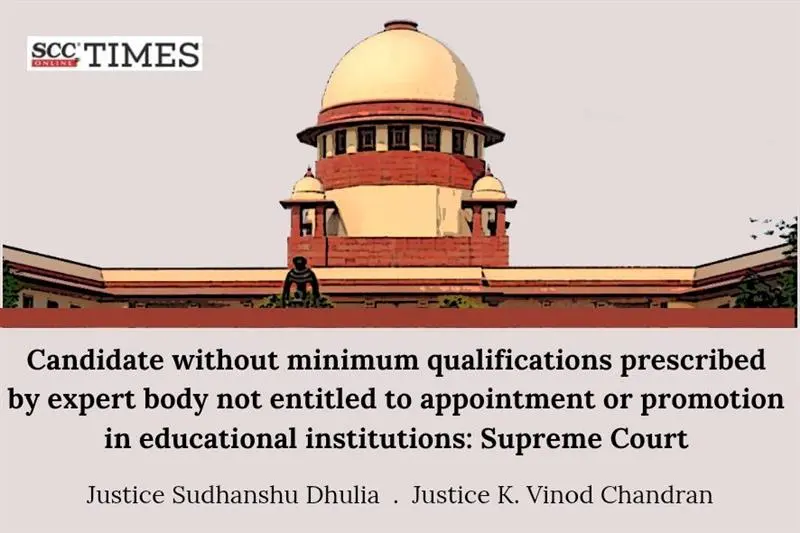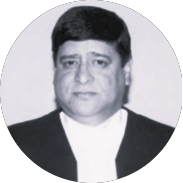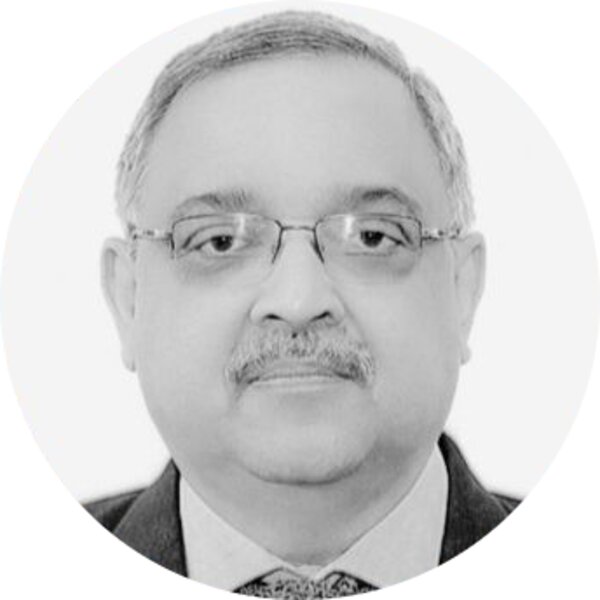Supreme Court: In civil appeals filed by All India Shri Shivaji Memorial Society (‘Society’) against the order passed by the Bombay High Court, as well as the order passed in review later, wherein the Court directed the Society to extend the benefit of revised pay scales under the 6th Central Pay Commission to the teachers are presently teaching in engineering and technical institutes run and managed by the Society, which is a private body and is not under the grant in aid of the Government, the division bench of Sudhanshu Dhulia* and K. Vinod Chandran, JJ. held that where a candidate does not possess the minimum qualifications, prescribed by an expert body, for appointment or promotion to a particular post in an educational institution, such a candidate will not be entitled to get appointed or will be deprived of certain benefits. Thus, the Court directed that the Society to release the higher pay scale to the teachers who were appointed prior to 15-03-2000, along with interest at the rate of 7.5% per annum on the arrears, within four weeks from the date of this judgment. The Court further clarified that the remaining teachers who failed to acquire a Ph.D. within seven years as required, cannot be designated as Associate Professors nor be entitled to the higher pay scale.
Background
The teachers, who possessed a master’s degree in their respective fields, were appointed as Lecturers/Assistant Professors by the Society in the institutes between 1995 and 2009. The requisite approval for their appointment had been obtained from the Universities to which the said institutes were affiliated. It was also an admitted fact that, with the exception of one teacher, the others had not been able to acquire Ph.D.’s within seven years of their appointment, as had been required.
Issue
Whether the teachers who have admittedly completed three years of service in the pre-revised pay scale of Rs.12000-18300 (on 01.01.2006) are now entitled for pay band of Rs.37400- 67000 and AGP of Rs.9000 and also whether they are liable to be redesignated as Associate Professors.
Analysis and Decision
The Court referred to the prescribed qualifications for teachers in an Engineering Institute, as laid down by the All-India Council for Technical Education (‘AICTE’). AICTE, originally constituted in 1945 as an advisory body to the Government of India, was granted statutory status under the All-India Council for Technical Education Act of 1987 (‘1987 Act’). The Court noted that AICTE’s formation as a statutory body could now be traced to Section 3 of the 1987 Act. Thus, under the powers referred above, AICTE was mandated to provide qualifications for teachers that would include Lecturers, Assistant Professors, Associate Professors and Professors, of Engineering and Technical Colleges.
The Court noted that the crucial date when a Ph.D. was prescribed for the first time as a qualification for Lecturers/Assistant Professors was 15-03-2000. Prior to this date, a Ph.D. was not an essential or mandatory qualification for such positions. Out of the nine teachers before the Court, four had been appointed prior to 15-03-2000, while the remaining five had been appointed after the notification of 15-03-2000, when the new requirement had come into effect.
The Court took note of the notifications of AICTE, which prescribed minimum qualification for various teaching posts in degree level technical institutes and further prescribed qualifications for Assistant Professor. Thus, the Court concluded that there can be no doubt that a candidate could be appointed as an Assistant Professor after 15-03-2000, only if he/she had a Ph.D. degree with a first class at Bachelor’s or Master’s level in their appropriate branch of Engineering and two years of teaching experience. A candidate could also be appointed Assistant Professor if he/she had a first class at Master’s level in their appropriate branch of Engineering and five years of teaching experience but such a candidate will be required to obtain a Ph.D. within a period of seven years from the date of appointment as Assistant Professor.
The Court noted that the teachers amongst the respondents were neither Ph.D. at the time of their appointment nor had they acquired Ph.D. within seven years.
The Court noted that after the two earlier notifications, the AICTE issued a notification on 05-03-2010, which once again prescribed the qualifications for teachers in technical institutes and reiterated the same requirements. In addition, the notification also specified the “pay structure for different categories of teachers and equivalent positions.” With this notification, the designation of “Lecturer” was changed to “Assistant Professor”. Consequently, following this notification, there would now be only three categories of teachers in universities and colleges (including technical institutions): Assistant Professor, Associate Professor, and Professor. The teachers claimed the benefits of the above provision. The Assistant Professors who had completed three years of service in pre-revised pay scale of Rs.12000-18300 on 01-01-2006 wanted to be placed in the Pay Band of Rs.37400-67000 with AGP of Rs.9000 and to be designated as Associate Professor. This was denied to them by the Society for the reason that they did not possess a Ph.D. degree which was a mandatory requirement to be an Assistant Professor.
The Court stated that the provision relied upon by the teachers clearly stipulated that Assistant Professors who did not possess a Ph.D. qualification were required to acquire one within seven years of their appointment, failing which they would not receive their increment. Therefore, when the provision, even in its clarificatory notification, denies an increment to such teachers, it logically follows that they cannot be granted a higher pay scale. In any case, the notifications of 2005 and 2010 leave no room for doubt that these teachers would not be entitled to the higher pay scale.
The Court further clarified that the phrase “incumbent Assistant Professors and incumbent Lecturers” in Clause (ix) of the 2010 AICTE Notification refers to those Assistant Professors and Lecturers who possess the essential qualifications, including a Ph.D., or those who were appointed prior to 15-03-2000, without a Ph.D. AICTE, being an expert body mandated by law to prescribe essential qualifications for teaching posts, cannot be questioned in terms of its logic or wisdom in making such prescriptions. No one has challenged the necessity of a Ph.D. as an essential qualification. The law not only prescribes qualifications but also stipulates the consequences of failing to meet these requirements. The Court found nothing arbitrary in these prescriptions.
The Court reiterated that the responsibility for fixing qualifications for appointment, promotion, and admissions lies with expert bodies, in this case, the AICTE. It further emphasized that as long as the qualifications prescribed are not arbitrary or perverse, the Courts will not interfere with the decisions of such expert bodies. However, the Court clarified that this does not mean the Courts are deprived of their powers of judicial review. Instead, it indicates that Courts must be cautious in interfering with expert opinions regarding academic standards. Judicial review should only be exercised in cases where the prescribed qualifications or conditions are contrary to the law, arbitrary, or require the interpretation of a legal principle.
Thus, the Court concluded that where a candidate does not possess the minimum qualifications, prescribed by an expert body, for appointment or promotion to a particular post in an educational institution, such a candidate will not be entitled to get appointed or will be deprived of certain benefits.
The Court stated that in the present case, the law itself creates two distinct classes: an Assistant Professor with a Ph.D. and an Assistant Professor without a Ph.D. If the salary, designation, and other benefits remained unchanged for both categories, as the private respondents suggested, it could have a negative impact on the quality of teaching. The Court emphasized that its focus is not only on equity in service conditions but also on the quality of teaching.
In light of this, the Court concluded that the respondents appointed after 15-03-2000, who did not possess a Ph.D. and had failed to acquire one within seven years of their appointment, could not benefit from the 2010 notification. As such, they would not be entitled to the higher pay scale or re-designation as Associate Professors. The Court clarified that the phrase “incumbent Assistant Professor” in the 2010 notification would only include those Assistant Professors who either had a Ph.D. at the time of their appointment or had acquired a Ph.D. within seven years of their appointment, as required by the 2000 and 2005 notifications. Additionally, those appointed prior to 15-03-2000, when the Ph.D. was not an essential qualification, could continue uninterruptedly. Teachers who were appointed after 15-03-2000, and failed to obtain a Ph.D. thereafter would not be entitled to the benefits of the 2010 notification, as outlined in Clause (ix).
The Court directed that the Society to release the higher pay scale to the teachers who were appointed prior to 15-03-2000, along with interest at the rate of 7.5% per annum on the arrears, within four weeks from the date of this judgment. Failing to do so, the interest shall be calculated at the rate of 15% per annum.
The Court further clarified that the remaining teachers who failed to acquire a Ph.D. within seven years as required, cannot be designated as Associate Professors nor be entitled to the higher pay scale. However, when these teachers eventually acquire a Ph.D., they are at liberty to apply to their respective institutions and the AICTE for the grant of a higher pay scale and the designation of Associate Professor, which shall be considered in accordance with the law.
CASE DETAILS
|
Citation: Appellants : Respondents : |
Advocates who appeared in this case For Petitioner(s): For Respondent(s): |
CORAM :









Very congenial.,but the Govt. Authourities /at Secretary or Director level bypassing the basic minimum point and recruiting if any legal complication arise they approach the CAT and the stay obtained by the individuals won’t attennedby the Govt. Sue to the apparent understanding and years together further postings continue with caption “SUBJECT TO OUTCOME OF THE OA OF …” If the authority isssue orders on the basis of supreme court they again approach CAT and obtain stay. How ridiculous it is. Can the orders of Apex Court or High Court challenged in Lower courts ?